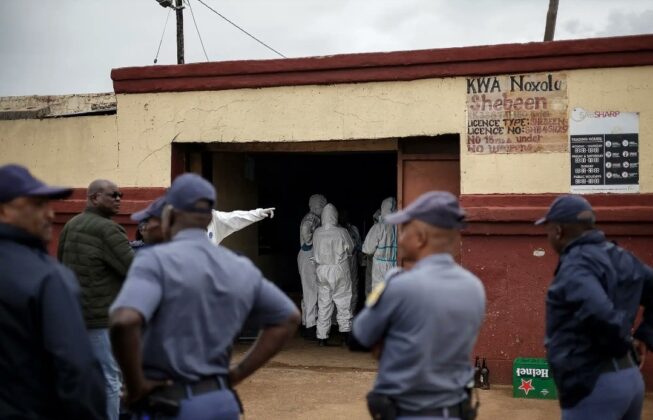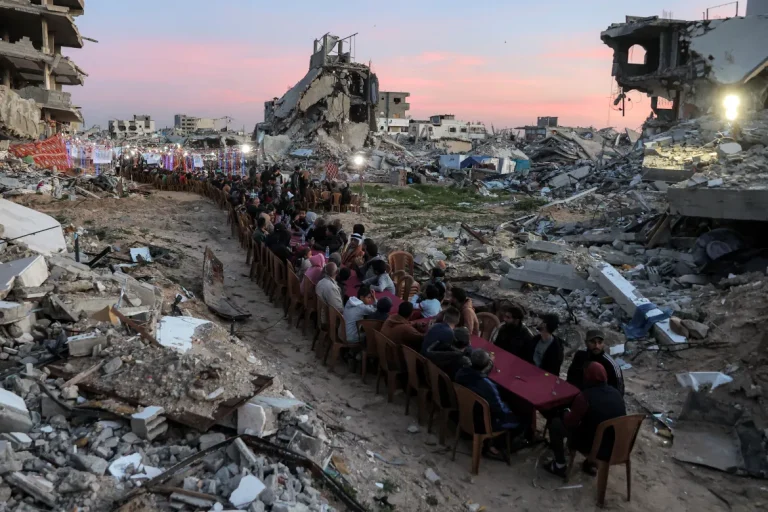
Venancio Mondlane during his swearing-in ceremony as a member of the Mozambique Council of State. Image Credit: aimnews.org
(The Post News) – Mozambican Leader Daniel Chapo on Monday officially inducted the most recognized opposition individual, Venancio Mondlane, as a member of the Mozambique Council of State, a high-level advisory body that counsels the Head of State on matters of national importance.
The ceremony marked an important step in reinforcing the principle of opposition inclusion in Mozambique’s political system, despite ongoing debates surrounding the recent presidential election.
Legal Rights and Election Controversy
There had been some conjecture that Mondlane would not be permitted to join the Mozambique Council of State. However, Mozambican law clearly stipulates that the runner-up in the most recent presidential contest is automatically entitled to a position on the Council.
This legal provision is intended to ensure that opposition voices are represented at the highest levels of government, contributing to a more balanced decision-making process.
Mondlane, however, has publicly asserted that he actually won the election. According to him, irregularities in the voting process may have influenced the final results. Despite his claims, the Constitutional Council, the supreme authority overseeing electoral affairs, declared that Mondlane placed second.
Neither the Council nor Mondlane has disclosed the detailed polling station result sheets, which could provide evidence supporting their respective claims. Additionally, the Council declined requests to order a vote recount, leaving some opposition supporters skeptical about the transparency of the process.
Opposition Representation on the Council
On Monday, three additional opposition figures were also sworn in as members of the Mozambique Council of State. All three are leaders of opposition parties appointed by the Mozambican legislature, the Assembly of the Republic.
They include Albino Forquilha, head of the Optimistic Party for the Development of Mozambique (Podemos); Ossufo Momade, president of the former insurgent movement Renamo; and Lutero Simango, leader of the Mozambique Democratic Movement (MDM).
Other Council members appointed by the Assembly and sworn in on the same day include prominent figures such as Muslim religious leader Aminuddin Mohammed, former chief of the National Elections Commission (CNE) Jamisse Taimo, and former environment minister Alcinda Abreu.
Their presence reflects a deliberate effort to maintain a broad and inclusive representation of different political, religious, and professional perspectives in the Council’s deliberations.
Presidential Appointees and Current Members
In addition to legislative appointees, four Council members chosen directly by President Chapo were inducted. They are former Defence Minister Alberto Chipande, previous education minister and advocate for women and children’s rights Graca Machel, and two veterans of the anti-colonial struggle, Eduardo da Silva Nihia and Felizarda Paulino.
Their appointment underscores the continued influence of experienced political and social leaders in guiding the nation’s governance.
Other Council members sworn in Monday include former President Filipe Nyusi, Prime Minister Bemvinda Levy, and parliamentary chairperson Margarida Talapa. Meanwhile, several members did not require re-induction, such as former Presidents Joaquim Chissano and Armando Guebuza, the Ombudsman Isaque Chande, Chairperson of the Constitutional Council Lucia Ribeiro, and the three prior chairpersons of the Assembly of the Republic, Eduardo Mulembue, Veronica Macamo, and Esperanca Bias.
The Mozambique Council of State plays a critical advisory role. The President must consult it on the date of general elections, the dismissal of provincial governors and district administrators, the holding of any referendum, the dissolution of parliament, any declaration of war, or the declaration of a state of emergency or siege.
While general elections remain the most common consultation, other extraordinary powers, such as dissolving parliament or dismissing governors, have never been exercised in Mozambique’s post-independence history.
The inclusion of opposition leaders like Venancio Mondlane in the Mozambique Council of State is seen as a significant step toward political inclusivity, fostering dialogue across party lines, and ensuring that a variety of perspectives are considered in key decisions.
Analysts argue that maintaining a strong and diverse Council strengthens Mozambique’s democratic processes and supports long-term political stability.
As Mozambique continues to navigate complex challenges, from economic development to national security, the Mozambique Council of State remains a cornerstone of governance, providing critical advice to the President and shaping the strategic direction of the country in a way that reflects both majority and opposition voices.



